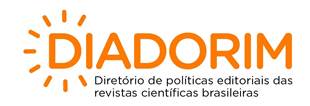Aerobic exercise training for migraine prevention: A trigger-based analysis
Views: 687DOI:
https://doi.org/10.48208/HeadacheMed.2019.4Keywords:
Physical Activity, Exercise, Stress, Treatment, TriggersAbstract
Background: Although aerobic exercise has been recommended for migraine management, no study has yet explored the effects of regular aerobic exercise on migraine triggers profile. Objective: To evaluate the effects of a 12-week aerobic exercise intervention on migraine triggers profile. Methods: We conducted a secondary, post hoc analysis of a randomized, controlled clinical trial. Triggers were recorded in a paper-based headache diary with a formal list including 8 common migraine triggers. Results: Twenty-five patients concluded the protocol and were analysed (exercise: n = 12; waitlist: n = 13). In the whole cohort, the most common triggers were stress/irritability (60 %), sleep deprivation (60 %), fasting (28 %), and foods (28 %). Most patients (52 %) had ≥ 3 triggers. The exercise group showed a higher baseline proportion of patients with ≥ 3 triggers (69 %) compared to waitlist group (25 %) (p = 0.041). After intervention period, there was no difference in the proportion of patients with ≥ 3 triggers between waitlist (16.6 %) and exercise (30 %) groups (p = 0.502). The exercise group showed greater numeric reductions (from group’s sum) than waitlist group for triggers stress/irritability (-14 vs -9), fatigue (-12 vs -6), and menstruation (-9 vs -5). This seemed to reflect the reduced number of attacks in the exercise group [mean (CI95 %): -2.5 (-3.7, -1), p = 0.002] vs waitlist [0.9 (2.4, -0.8), p = 0.341]. Conclusion: Tracking migraine triggers during exercise interventions may help to unravel specific clinical effects of regular exercise. Trial registration: #NCT01972607.
Downloads
Published
How to Cite
Issue
Section
License
Copyright (c) 2019 Headache Medicine

This work is licensed under a Creative Commons Attribution 4.0 International License.













